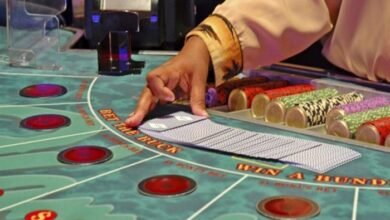Unveiling the Mystery of Lotology: What Is It and Why Does It Matter?

Introduction
Lotology is a term that may not be widely known, but it has gained traction in specific circles of research, philosophy, and even in modern-day social interactions. The meaning of Lotology involves exploring the deeper, often obscure connections between various disciplines, focusing on the interplay between chance, fate, and the human experience. Although it might sound like a complex or niche subject, the concept holds relevance in understanding our place in the world and the events that shape our lives.
This post delves into what Lotology is, its origins, and why it holds value in both academic and everyday settings. We will discuss its role in philosophy, science, and culture, answering questions like, “What is the meaning of Lotology?” and exploring its potential impact on the way we approach decision-making, life events, and even larger existential concepts.
What Is the Meaning of Lotology?
The primary definition of lotology is the study or the philosophical consideration of “lots” — elements of chance, randomness, and the roles they play in human life. It is a field that seeks to answer profound questions about fate, destiny, and the randomness of life events. A “lot,” in this context, refers to a drawing of chances, such as in the lottery, casting lots, or even the idea of a chance encounter or accident that influences the course of one’s life. Thus, Lotology focuses on the broader implications of these random events and their perceived significance.
Lotology explores how individuals and societies attribute meaning to the randomness of life, often questioning if chance governs outcomes, or if something more deterministic is at play. The study combines elements from mathematics, philosophy, and sociology, among others, seeking to understand whether life’s occurrences are purely random or guided by unseen forces.
The Origins and Historical Background of Lotology
The meaning of Lotology has roots in ancient traditions and philosophical discussions about fate and destiny. Cultures around the world have used methods of casting lots for millennia, whether in religious ceremonies, decision-making processes, or determining the course of events. In ancient Greece, casting lots was not only a means of decision-making but was also considered a way of aligning with divine will. Many ancient texts, including the Bible, reference lots as a way of determining God’s intentions.
The term “Lotology” itself, while modern in usage, builds upon these ancient practices. Philosophers like Heraclitus, who believed that everything is in flux and subject to chance, paved the way for later thinkers to explore the implications of randomness and fate. Lotology, therefore, represents an academic effort to understand the broader philosophical and social contexts of these ancient practices.
Why Is Lotology Important in Today’s World?
In today’s fast-paced, highly connected world, the meaning of Lotology has taken on new significance. As people navigate complex systems of choice, uncertainty, and decision-making, understanding the role of chance and randomness becomes increasingly vital. Lotology helps shed light on how we interpret and deal with the uncertainty in our daily lives, whether it’s in our personal relationships, financial decisions, or even global events.
One key aspect of Lotology’s relevance today is its role in the analysis of probability and risk. In fields such as finance, healthcare, and even politics, understanding the dynamics of chance is crucial to making informed decisions. Lotology helps us embrace the unpredictable nature of life while also offering tools to mitigate its challenges. It reminds us that while we can control many factors, some elements are beyond our reach, and this randomness shapes our existence in ways we may not always understand.
The Philosophical Implications of Lotology
When we explore the meaning of Lotology, we enter the realm of deep philosophical questions. Lotology isn’t just about randomness; it’s about how humans relate to the unknown and the uncontrollable. Philosophers have long debated whether our lives are governed by fate, randomness, or a combination of both. In a world that increasingly embraces deterministic scientific explanations, Lotology encourages a rethinking of this perspective, questioning if pure randomness can truly govern our lives or if fate has a hand in shaping the course of events.
One of the key questions Lotology raises is whether we can ever truly be free of chance. If every decision we make is influenced by external, random factors, then to what extent are we in control of our own destiny? These questions challenge the concept of free will and offer a rich avenue for philosophical inquiry into the nature of existence and the forces that shape our world.
Lotology and Its Influence on Decision-Making
Another area where the meaning of Lotology shines is in decision-making. Lotology offers a lens through which to examine how decisions are influenced by randomness and uncertainty. In many cases, we are faced with situations where the outcome is not clear-cut, and there is no way to predict with certainty what will happen. Lotology explores how humans deal with these uncertain situations, whether it’s through risk management, relying on luck, or making educated guesses based on probabilities.
One example of Lotology in modern decision-making is the use of lotteries or random number generators in selecting people for trials, contests, or even job opportunities. These methods are based on the concept that fairness can only be achieved by removing bias and embracing the randomness of chance. In this sense, Lotology can be seen as an important tool for improving transparency and equality in decision-making processes.
Lotology in Popular Culture: Representations of Fate and Chance
The concept of Lotology often finds its way into popular culture, where it plays a significant role in how we perceive fate and chance. From movies like The Hunger Games, where random selection determines a person’s fate, to the concept of the lottery as a form of hope and change, Lotology offers a metaphor for the human condition. The portrayal of these random events in stories often highlights the inherent uncertainty and unfairness of life.
Lotology in popular culture also reflects society’s fascination with the unpredictability of life. The randomness of outcomes, combined with the human desire to find meaning in these outcomes, creates a compelling narrative that resonates with audiences worldwide. These representations of Lotology also serve as a reminder of how randomness shapes our reality and the importance of accepting uncertainty as a part of life.
The Future of Lotology: What’s Next?
As we look toward the future, the meaning of Lotology is likely to evolve. With the rise of artificial intelligence, machine learning, and data-driven decision-making, there is a growing interest in understanding how algorithms can predict or even simulate randomness. Can machines truly replicate the unpredictable nature of life, or will the human element always introduce a level of chance that cannot be controlled?
Lotology is poised to play a critical role in shaping how we navigate this intersection between technology and chance. As our understanding of randomness deepens, so too will our ability to make better decisions, create fairer systems, and embrace the inherent uncertainty of existence.
Conclusion
The meaning of Lotology is much more than a theoretical concept; it is a framework for understanding the role of chance, randomness, and fate in shaping our lives. Whether we are contemplating philosophical questions about free will, engaging in decision-making processes, or simply navigating the uncertainty of our daily existence, Lotology offers a valuable lens through which to view the randomness of life.
By exploring Lotology, we gain insight into how chance influences our outcomes and how we can learn to cope with, or even thrive in, uncertain circumstances. From its historical origins to its contemporary applications, Lotology continues to be an important field of study, offering profound insights into the nature of existence, the role of randomness, and our place in a world full of uncertainty.
FAQs
- What is Lotology? Lotology is the study of randomness, fate, and chance, exploring their impact on human life and decision-making.
- Is Lotology a new concept? While the term “Lotology” is modern, its roots trace back to ancient practices of casting lots and philosophical discussions on fate.
- How does Lotology relate to philosophy? Lotology engages with philosophical questions about free will, determinism, and the role of chance in shaping human experiences.
- What are the practical applications of Lotology? Lotology influences fields such as risk management, decision-making, and even social justice, where randomness is used to ensure fairness.
- Can Lotology be applied to everyday life? Yes, Lotology offers valuable insights into handling uncertainty and making decisions when outcomes are not predictable.




